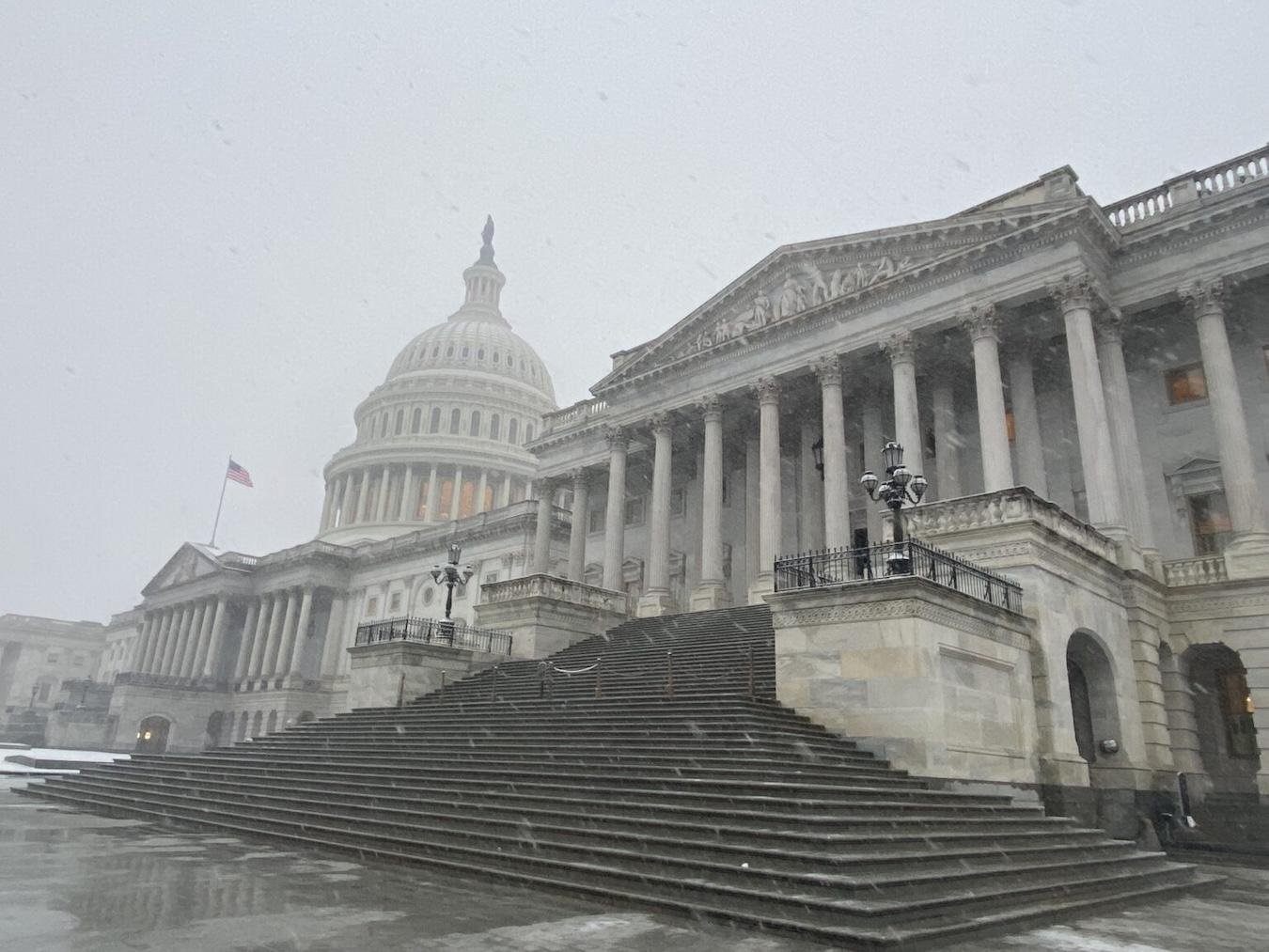border
House GOP Proposes $4.5B Tax Cut Funded by Deep Medicaid and Social Program Cuts

On Wednesday, U.S. House Republicans unveiled a new budget resolution aimed at raising the debt limit and presenting a distinct reconciliation package compared to the version released by Senate Republicans last week.
The House budget proposal suggests that Congress should approve one comprehensive bill. This measure seeks to extend the 2017 tax cuts initiated during Donald Trump’s presidency while increasing spending on border security and defense. To offset the anticipated trillions in deficit, cuts to other government programs are proposed.
As part of this resolution, the House aims to raise the debt limit by $4 trillion. Currently, the United States carries a debt of $36.22 trillion.
Speaker Mike Johnson (R-La.) emphasized the collective effort of House Republicans in shaping this resolution, which he believes aligns with Trump’s agenda. Johnson noted, “There will be ongoing debates and discussions in the coming weeks,” reinforcing the necessity for thorough deliberation.
However, Democrats have raised concerns about the implications of these proposed cuts, particularly to Medicaid, which serves approximately 80 million low-income individuals. House Democratic Assistant Leader Joe Neguse criticized the resolution, labeling it a “betrayal of the middle class” that would ultimately benefit billionaires and corporations.
Neguse expressed skepticism regarding the projected outcomes of the GOP budget, asserting, “You don’t decrease costs by gutting Medicaid.”
In the Senate, Republican discussions progressed concerning their separate budget resolution. This strategy involves moving key policy goals through two distinct bills. The initial bill allocates $175 billion for border security, $150 billion for defense, and around $20 billion for the Coast Guard, with funding sourced from cuts to other government programs.
Senate Budget Committee Chairman Lindsey Graham (R-S.C.) reiterated the importance of swift action on defense and border security spending before addressing tax legislation. He emphasized that comprehensive immigration reform would be a later priority, contingent upon addressing border control first.
To facilitate the legislative process, both chambers of Congress must align on an identical budget resolution including reconciliation instructions. Currently, House and Senate Republicans are pursuing divergent strategies but will need to converge on one or two reconciliation bills to advance their agenda.
The House’s budget resolution mandates various committees to draft their respective components by March 27. The Ways and Means Committee, under the guidance of Rep. Jason Smith (R-Mo.), could potentially allow a $4.5 trillion deficit increase while extending the 2017 tax cuts. Additionally, other committees are tasked with drafting bills involving significant cuts, including the Agriculture Committee, which faces a potential reduction of at least $230 billion in its budgetary scope.
Critics, including Rep. Frank Pallone Jr. (D-N.J.), argue that the anticipated impacts of these budget cuts, particularly on Medicaid, could be devastating. Pallone warned that millions might lose their healthcare coverage, exacerbating challenges faced by hospitals and healthcare providers.
As discussions evolve, the implications of these budget resolutions remain closely monitored by both parties amid concerns over potential impacts on essential services and long-term fiscal stability.


















